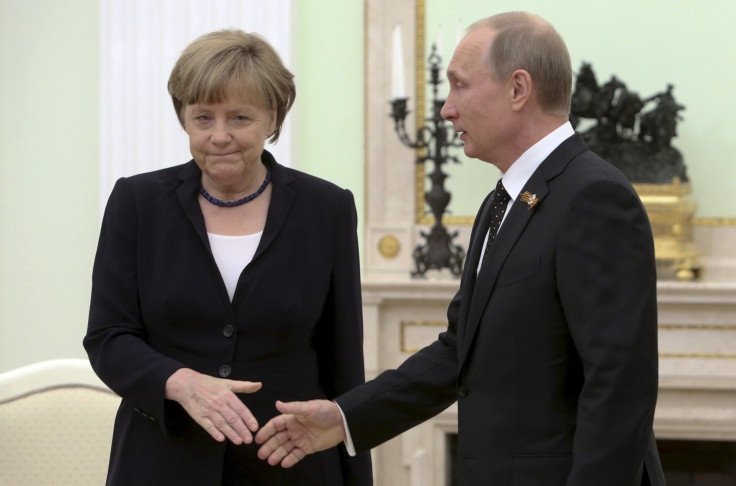Putin Blames International Human Rights Agencies For ‘Hushing Up’ Ukraine Issues

Russian President Vladimir Putin accused international human rights agencies of being a part of political “double standards” around the world. The accusation were made Thursday, the day celebrated as the Human Rights Day.
Putin said Thursday that humanitarian problems in southeastern Ukraine had been “hushed up.” He said it was sad that even international human rights agencies had apparently “sewn up their mouths on many absolutely glaring facts.”
“Events and their root-causes are misconstrued and misinterpreted and this becomes absolutely plainly visible," Russian News Agency Tass quoted Putin as saying. “We’ve seen of late the spread of double standards, as it were, and a clear partitioning into ‘friends’ and ‘foes’.”
The Russian president attended the 10th anniversary of the foundation of RT news channel. He used the occasion to express Russia’s readiness to hold open discussions despite the said “double standards.”
Putin appreciated RT’s efforts of not hiding its policies to represent the Russian government’s perspective on various issues, apparently indicating that a part of Western media was concealing their “hidden agenda.”
“We don’t have anything to hide or to conceal because our policies are veritable and we don’t we bear grudges against anyone," Putin said. "That’s the strongest point of our policies and I think the main source of strength in your work - neither you nor we have anything to conceal."
Former U.K. MP George Galloway earlier said that Russia and the West had different objectives in the Middle East. He said, while Russia was on a mission to defeat terrorist forces like ISIS in Syria, the United States and its allies were more interested in defeating the Assad regime.
Galloway, who spoke to RT on its anniversary, said the U.S. as well as its closest allies like the U.K. was “trapped in the paradigm of their own making” by claiming that their “anti-ISIS campaign” in Syria would only be successful if President Bashar Assad stepped down.
© Copyright IBTimes 2025. All rights reserved.





















